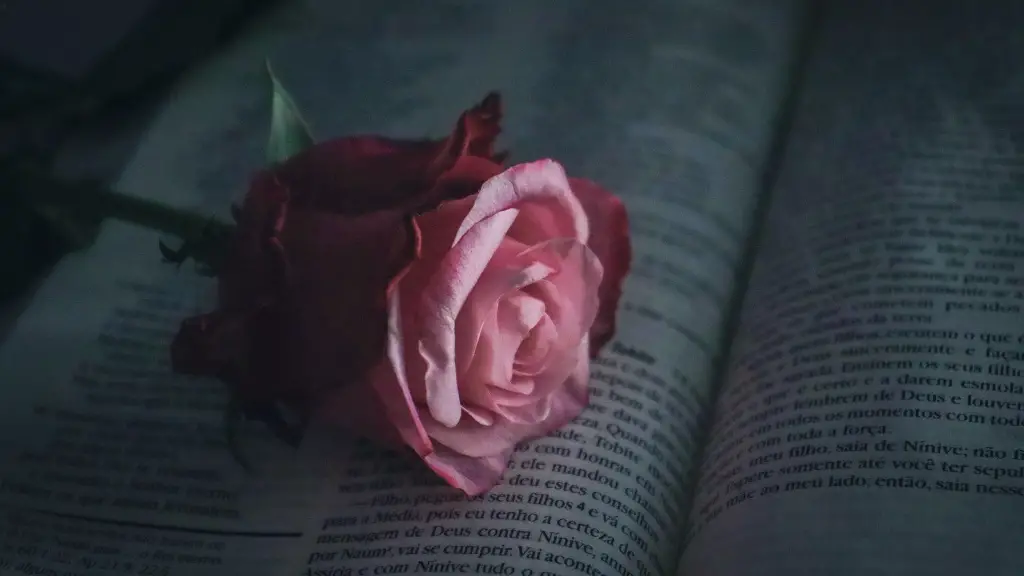What Is Ghazal Poetry?
Ghazal poetry is a popular form of classical poetry originating from pre-Islamic Arabia and Syria. It is characterized by its use of rhyme and meter, as well as its repetition of a single line or phrase, often as a refrain at the end of each couplet, known as the qafiya. Ghazal poets traditionally use a wide range of themes, often exploring love, religion, spirituality and philosophy. Ghazals are usually written in classical Arabic, though Urdu, Persian and Turkish are also popular.
Ghazal poetry dates back to the 6th century, when the first ghazals were written in medieval Arabia. Over the centuries, it has evolved into an intricate and highly stylized form of poetry, with lyrics often drawn from cultural and literary sources. It is considered an indispensable part of many cultures’ poetic heritage and continues to be a popular form of poetry for contemporary artists.
The overarching themes of ghazal poetry are often philosophical, exploring questions such as love and loss, identity, faith, and the meaning of life. Ghazal poems often contain subtle allusions and metaphors, which can leave readers with a powerful aftertaste. Traditional ghazals usually consist of at least four couplets that are sometimes linked by a common and recurring rhyme. Ghazals are often written in a particular rhythm or meter, known as matla, rhymed in a pattern called radif.
The beauty of ghazal poetry lies in its lyricism, which can convey great emotion, imagery and even humor. Some of the most renowned ghazal poets are Hafiz, Rumi, and Ghalib, who each wrote moving spiritual poems that continue to inspire and delight readers today. Ghazals have also been composed by modern-day artists, including the likes of Leonard Cohen, Bob Dylan and Diamanda Galas. Whilst contemporary ghazals may differ from their predecessors in terms of language and structure, they often retain the same themes and approach to poetry.
When writing a ghazal poem, the poet often takes on a persona to bring their words to life. This allows them to color the poem with a unique point of view, as if they were speaking from the heart. Ghazal writers also use vivid imagery and symbolism to paint a picture in the reader’s mind. In some cases, readers may even interpret a poem differently than the writer intended, taking the poem in a new direction altogether.
Ghazal poetry has provided generations with a way to communicate their innermost thoughts, emotions and observations without directly verbalizing them. It has helped people to express their deepest feelings, from love to longing and from joy to sorrow, allowing readers to make connections with their own experiences. Ghazal poetry can act as a powerful form of art, stirring deep emotions and thoughts within its readers.
Religions Significance
Ghazal poetry has an important role in many religious traditions. Muslim poets often incorporate references to Sufi mysticism and Islamic teachings into their work. In the same way, Christian poets often explore themes of redemption, divine grace, and morality. Hindu ghazal poets often use the spiritual wisdom of their faith to explore questions of faith and identity.
Given its varied references to different faiths and spiritual practices, ghazal poetry can be seen as a form of spiritual exploration and solace. Regardless of one’s religion or background, ghazals can provide readers with a way to reflect on the meaning of life and explore their own spiritual understanding.
Ghazal poems can also be used to convey love and devotion to a specific faith. Many ghazal poets use their work to communicate their admiration for their religion. They might write about devotion and surrender to Allah, about finding solace in prayer, or about the countless blessings of their faith.
Ghazal poetry can also be used to respond to ideas from other traditions. Muslim poets often use the ghazal form to contest the misconceptions and misunderstandings of Islam. By presenting their faith and its teachings through the beauty of words, they can help to counter popular misconceptions and break down cultural and religious barriers.
Political and Social Messages
Ghazal poetry is not limited to religious themes; many poets use ghazals to comment on the politics and social conditions of their time. Ghazals have been used over the centuries to challenge oppressive regimes and advocate for civil rights, freedom, and justice.
Poets such as Jalal ad-Din Muhammad Rumi, Mirza Ghalib and Allama Iqbal are seen as powerful voices of protest in oppressive societies. By highlighting the political and social injustices that their people faced, they were able to raise awareness about the struggles of their countrymen and stand voraciously for their rights.
More recently, poets such as Meena Kandasamy and Mohan Rana have used their ghazals to speak out against oppression, gender-based violence, and racism. Their words evoke powerful emotion, inspire positive social change and drive their listeners to strive for justice.
From ancient Arabia to the present day, ghazals have remained an important tool for poets to express their thoughts and grievances. By combining metaphor and emotion in their writing, ghazal poets are able to powerfully convey their messages, encouraging understanding, peace, and justice.
Modern Interpretations
Ghazal poetry has evolved tremendously over the centuries and continues to undergo significant changes. Today, ghazals can be found in a variety of languages and styles, from English and Spanish to Urdu and Hindi.
Contemporary ghazal writers are often inspired by the same themes and structures as traditional ghazal writers but may express them in a more creative and modern way. For example, rather than referring to universal themes such as love and mortality, some poets choose to focus on more personal experiences and emotions.
The poets’ voices are also more present in modern ghazals, as writers often draw on their own feelings and experiences to inform their words. This is most evident in poets who write about the complexities of modern-day life, such as struggles with identity and societal pressures.
In a rapidly changing world, ghazals offer modern poets a way to explore and express their thoughts and feelings. By using their words to communicate both the beauty and struggles of life, they provide insight into the modern human condition and continue to enrich the literary landscape.
Comparison With Other Forms of Poetry
Although it shares some characteristics with other forms of poetry, ghazal poetry is distinctive in its own right. Unlike other forms of poetry, such as the sonnet, haiku, and ode, which often rely on sequential storytelling and rhyme to convey meaning, ghazal’s strength lies in its cryptic connection of ideas.
Ghazal poets also often use repetition and refrains to create an emotional effect that cannot be found in longer poetic forms. This repetition of phrases, coupled with the ghazal’s focus on themes such as love and mortality, can create a powerful sense of longing or nostalgia in the listener.
In comparison to other forms of poetry, ghazal’s have a more improvisational feel to them. While other poetic forms often rely on a strict structure, ghazals allow for more freedom and spontaneity in the poet’s words. This freedom gives ghazal poets the unique opportunity to express their thoughts, feelings and observations in a creative and deliberate manner.
Conclusion
Ghazal poetry has been a powerful form of expression for centuries. From its pre-Islamic roots to its modern interpretations, ghazal poets have used their words to explore meaningful topics, from love and loss to faith and redemption. Through its use of themes, metaphors, and lyrical repetition, ghazals are able to evoke powerful emotion and thought in its readers, making it a powerful form of art. Whether used in religious or political contexts, or just to convey the poet’s own personal experiences, ghazal poetry has the power to speak to cultures and generations alike.





